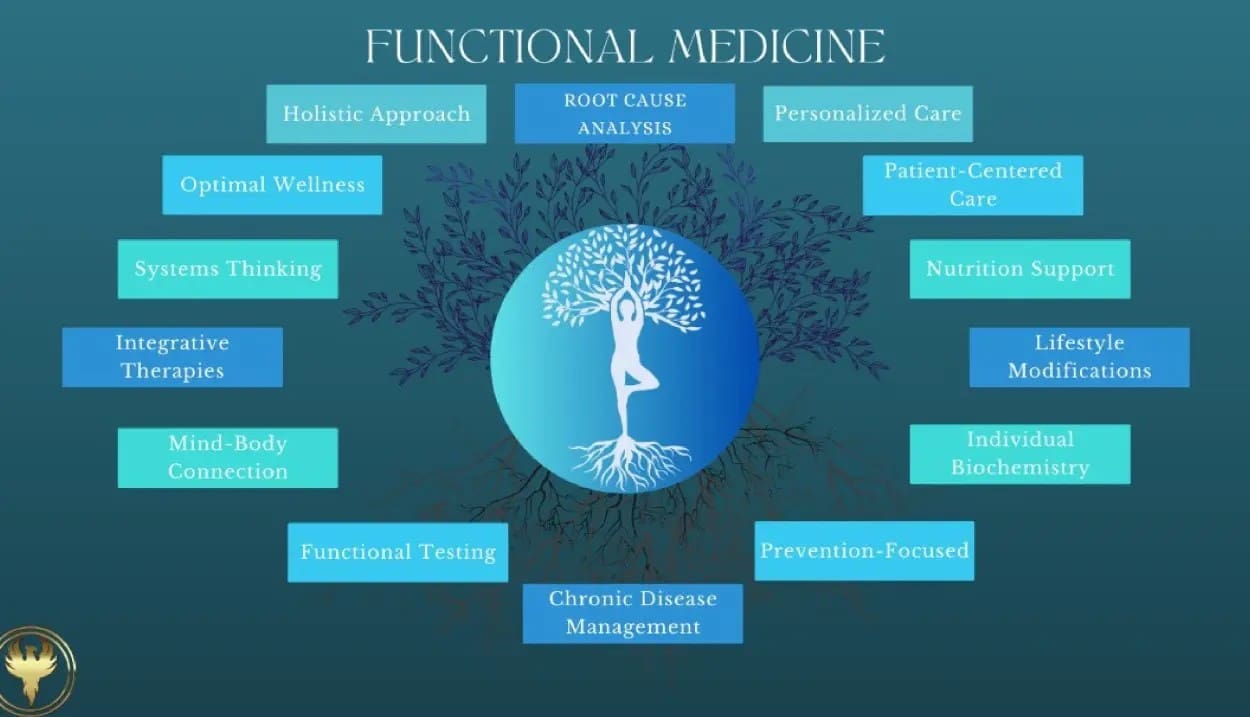Working With a Functional Medicine Practitioner
Functional medicine (FM) practitioners address the whole person, not just an isolated set of symptoms. These practitioners spend an extended amount of time with their patients, listening to their histories and looking at the interactions between environmental, lifestyle, and genetic factors that influence health. FM practitioners will consider multiple factors.
Example: Stress not only affects your daily mood and sleep patterns, but also affects certain hormones in your body. The effects of stress on these particular hormones may be the actual root of your chronic fatigue, hair loss, weight gain or loss, etc. Once we have discovered the root cause of the issue, we will formulate a specialized plan based on your needs that will meet you where you are and assist with implementing change at YOUR speed. Creating an effective, long-term, lifestyle change over TEMPORARY relief.
Understanding the genetic, lifestyle, and environmental factors unique to each person, an FM practitioner is able to identify which bodily processes are affected. Some occur at the cellular level and involve how cells function, repair, and maintain themselves. Others are related to how your body processes and uses nutrients. Any of these processes can become imbalanced or disrupted, which can cause or accelerate symptoms and disease.

 Loading...
Loading...
Comprehensive Approach to Treatment
Most imbalanced processes can be addressed to restore or substantially improve a person's health.
What is Functional Nutrition
FM emphasizes the importance of high-quality foods and phytonutrient diversity to address clinical imbalances and move individuals toward the highest expression of health. Advanced nutrition assessment and a thorough FM-based history lead to a personalized therapeutic intervention created to promote optimal health and prevent diet-and lifestyle-related disease.
Nutrition is the core modality of Functional Medicine, an integrative approach to health. As defined by The Institute of Functional Medicine, "FM is an evolution in the practice of medicine that better addresses the healthcare needs of the 21st century. By shifting the traditional disease-centered focus of medical practice to a more patient-centered approach. FM supports the unique expression of health and vitality for each individual.

